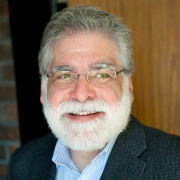My interest in cultural psychiatry has its roots in my family background. As the grandson of immigrants who came to Canada in the 1910s escaping pogroms in Eastern Europe, issues of identity and tradition, racism and justice, and the riches and pleasures of cultural diversity were the topics of many conversations while I was growing up. I began my university studies in physics and mathematics, but discovered I had an aptitude for psychology and completed my undergraduate degree in physiological psychology at McGill. Among my teachers and mentors at that time were Dalbir Bindra, Donald Hebb, and Ronald Melzack. My undergraduate research was on state-dependent learning with drugs and ACTH in mice and electrical stimulation of the hippocampus in rats. This early exposure to research convinced me that empirical psychology could provide a firmer foundation than psychodynamic theory for psychiatry.
I planned to continue on to a doctorate in clinical psychology, but was persuaded that medical training would provide me with a politically more effective platform from which to address my concerns about the misuse of psychiatric power, which came from reading R.D. Laing and other writers on ‘anti-psychiatry’. During my last year of medical school at McGill, I took a course on ethnopsychiatry from the medical anthropologist Margaret Lock, who had just come to McGill after completing her doctorate at Berkeley. The topic captivated me and it became clear that this was the direction I wanted to take. I went to the University of California at Davis for my residency in psychiatry. There I had the good fortune to meet the anthropologists Byron and Mary-Jo Good, who had just come from Harvard, where they were colleagues of Arthur Kleinman. With a consultation-liaison psychiatrist, Henry Herrera, the Goods established a cultural consultation service at the UC Davis Medical Center, where patients received evaluations and treatment from a mixed group of clinicians and healers from the community, including a Puerto Rican espiritista, Mexican curandera, and an African American Baptist minister.
I returned to Montreal in 1980, completed a research fellowship and took a staff position at the Jewish General Hospital (one of five McGill teaching hospitals) as a consultation-liaison psychiatrist and researcher. My early research studies examined somatization in primary care. In a very fruitful collaboration with Jim Robbins, a medical sociologist now at the University of Arkansas, we developed an approach to somatization as illness behavior, with an emphasis on causal attributions and interpersonal processes.
Soon after my return to Montreal, I discovered that McGill had a Division of Social and Transcultural Psychiatry, then headed by Raymond Prince. At his invitation, I wrote a review article on culture and somatization for the journal he edited, Transcultural Psychiatric Research Review. I continued to learn medical anthropology by osmosis in the congenial company of an evening study group that included Margaret Lock, David Howes and John Leavitt.
Montreal at that time was also home to the Interuniversity Group for Research in Medical Anthropology and Ethnopsychiatry (usually referred to by its French acronym, GIRAME), founded by Guy Dubreuil of the University of Montreal and H.B.M. Murphy of McGill. At a time when linguistic tensions in Montreal ran high, it was an inspiring example of integration, in which both English and French were used freely, as suited the comfort of the speaker. With Guy Dubreuil, I took on co-editorship of GIRAME’s bilingual journal, Culture/Santé/Health. My friendship with the anthropologists Gilles Bibeau (who was Chair of Anthropology at the University of Montreal) and Ellen Corin dates back to that time, and they have both been tremendously supportive, stimulating and challenging colleagues. In the late 1980s, GIRAME and its journal wound down as other forms of networking and collaboration took their place.
In the early 1980s, with the help of Margaret Lock, I undertook some brief fieldwork in Japan, but clinical and family responsibilities sidelined plans to continue. In 1989, I had the opportunity to do psychiatric consultations for the Inuit in the arctic region of Quebec and this began an ongoing involvement in Inuit mental health. Struck by the high suicide rate among young men, I began a series of epidemiological and ethnographic studies aimed at understanding the impact of internal colonialism and culture change on Inuit mental health. This led to a broader interest in and involvement with the mental health of indigenous peoples and, eventually, the founding of a National Network for Aboriginal Mental Health Research, which I co-direct with Dr. Gail Valaskakis, the Director of Research for the Aboriginal Health Foundation. Currently, I am leading a cross-national research program on resilience among Indigenous peoples, with colleagues from New Zealand.
In 1991, Raymond Prince retired and I took over the direction of the Division and editorship of the journal. Transcultural Psychiatric Research Review was the oldest journal in the field, but because it published mainly abstracts and reviews of other articles, did not have much visibility outside its circle of devoted readers. I was mandated to make over the journal as a peer-reviewed publication and arranged to move from in-house publication to an arrangement with Sage (UK), a leading publisher of social science and other journals. This arrangement has allowed the journal to grow and to become an arena for current research work in cultural psychiatry. We remain committed to maintaining its diversity both in terms of the geographic origins of contributors and the many disciplines represented. As an international journal that cuts across psychiatry, psychology, anthropology and other social sciences, Transcultural Psychiatry occupies a unique interdisciplinary niche.
Since the early 1990s, my thinking about culture and psychiatry has been strongly influenced by ongoing conversations with the medical anthropologist Allan Young, whose critique of the cultural construction of PTSD has provided a model for the careful ethnographic, historical and philosophical analysis of psychiatric research and practice. My clinical perspective owes much to my colleagues Jaswant Guzder and Cécile Rousseau. I feel extremely fortunate to have such innovative and committed scholars and clinicians as friends and colleagues. In addition to continuing work on Aboriginal mental health, healing and resilience, I am engaged in a range of other projects on models of mental health services for multicultural societies, the use of the cultural formulation in cultural consultation, the conceptual integration of cultural and social neuroscience research, and the role of metaphor in illness and healing. At the center of my work in cultural psychiatry are two fundamental concerns: the power of poetic language to transform experience and the politics of empathy and alterity in clinical practice.
E-mail: laurence.kirmayer@mcgill.ca
October 5, 2006

